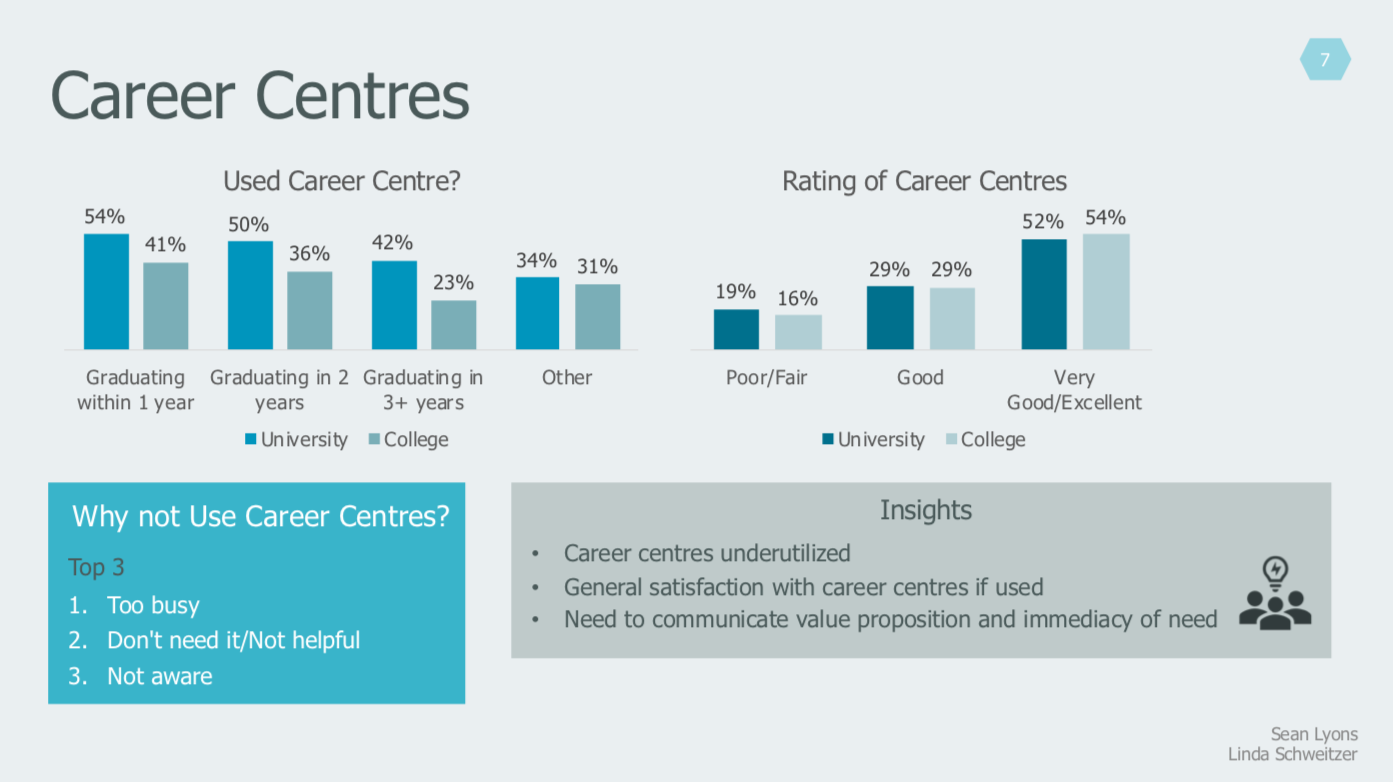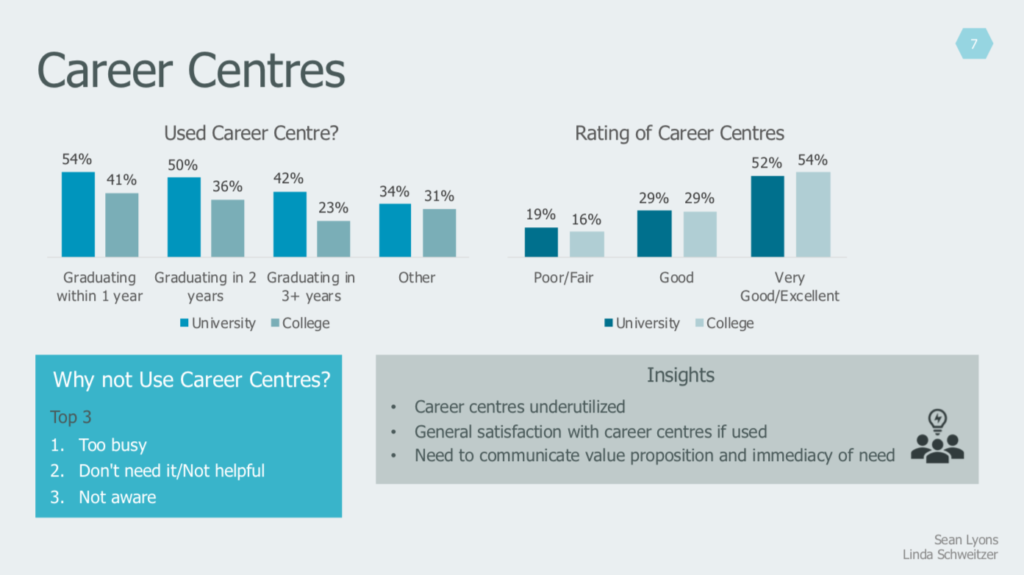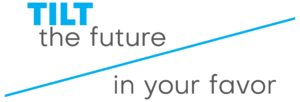
27 Nov E35: 5 ways your campus careers centre can help if you are a new Grad, a student or Alumni
5 reasons to make full use of your career resource center … whether you starting, finishing or have graduated
In your final year of study – time crunch and tactical advice.
Your final year in education can be stressful and significantly time-constrained.
Beyond learning, and learning how to learn, many students choose to attend a post-secondary institution so they can get an education to improve their job prospects.
If that is the case, work smarter, not harder. Leverage your career resource centre and their knowledgeable staff.
They spend time nurturing relationships with employers over the years. They collect data, and are there to offer great advice.
We covered many of the advantages of working with your careers group in a previous episode which lists the 10 key services available at most career centers. But here are 5 more:
- Local, national & international businesses coordinate their campus interviewing through these offices
- They coordinate the campus job fairs and co-op opportunities
- They can advise you on postgraduate learning opportunities
- They understand the business landscape and the Future of Work
- They can offer advice on negotiating your salary and benefits
But why would you wait until your final year of study to discover the wonders of your careers group?
Start early. Create a relationship with your careers staff.
Post-secondary is where our life and learning experiences explode. As we learn more about ourselves, make new contacts, get exposed to new concepts, technologies, fields of study, it is not unusual to begin to question the career paths and degree choices that we had made.
We may end up validating our intended career path or choose to switch it completely. These are big choices around career discovery.
Less than 50% percent of years 1-3 students take advantage of their careers center in their earlier years of study. Here are 5 reasons to start that relationship early:
- Don’t be afraid to debate your personal career direction and strategy
- Create a professional LinkedIn profile
- Develop your resume and learn to write a cover letter
- Get access to paid and unpaid internship opportunities
- Connect with alumni to assist you in your career discovery & exploration
With the proliferation of career specializations available, many students find it very valuable to talk to alumni in their field of interest.
My son was paired with an alumni member in his first year, someone who continues to be an invaluable sounding board as he discovered new and different opportunities in his journey through his degree, and is still a mentor now that he is a young professional himself.
For Alumni – lifelong development and learning
Career advancement centers are often eager to assist past graduates and are a great connection space and resource.
- Alumni events maintain, develop & extend your circle of connections
- Career strategy and planning (because we are never fully baked)
- Access to their job sector intelligence databases
- Job strategies for those seeking new career direction
- Information on continuing education, postgraduate degrees, and certifications
Why bother with co-op, internship, and summer work opportunities?
From the day you walk onto campus, you should seek out and find your Career Centre, and have them help with your LinkedIn profile.
With a professional LinkedIn profile and a well-crafted resume, you can now head out and search for summer jobs, paid and unpaid internships. You can network confidently as you attend conferences and coffee-chats, exploring the broadening range of jobs, challenges and opportunities out there in the broader world.
There are a number of reasons to take advantage of co-ops and internships.
Over 75% of employers want applicants with experience
Over 3/4 of Canadian employers surveyed prefer a candidate with work experience as per the 2018 Business Council Skills Survey. Ideally exact or relevant experience in your field of study is the most valuable – but that is a rare find.
That number is echoed in the 2017 NACE Job outlook report in the USA.
Give me the opportunity, I hear you say? Well there are many organizations working on just that, led by the RBC Future Launch program.
During an interview, an employer can discover just as much about your softer or EQ skills from your previous work experience. In fact, they want to discover your flexibility:
- Are you good at learning and working with new concepts and ideas?
- How quickly can you assimilate into a new team, and make your voice heard?
- Do you demonstrate critical thinking and planning ability?
- Do you have the proven ability to work?
But an interview is a two-way date. You are searching for the right fit for work environment, as much as the employer is searching for a competent candidate.
Speed-date your ideal career
We have all heard of the doctor who faints at the sight of blood, or the teacher who discovers they cannot stand kids. Co-ops, volunteer jobs, paid and unpaid internships allow you to ‘speed-date’ your future career. Discover the work conditions that make you tick; ensure the culture at your ‘ideal’ company matches your expectations; test out other job positions in your field of interest.
Explore your career options
As we head into a very nebulous Future of Work, this is perhaps the most valuable service you can use at your university.
Here are some other ideas:
- Consider your careers centre as another member of your faculty.
- Treat resume writing, interview prep and LinkedIn profile creation as assignments…because they are just as important.
- Leverage the ‘TA’s (your onsite counsellors).
While the last speaks to a marketing issue from these crucial departments, the average student should see the career centre as integral a part of their learning experience as the lectures they attend and their extra-curricular experiences.
The statistics state that employers are looking for job experience. Ideally job experience in your field of study. But any kind of job experience also gives them indicators to your EQ skill set – which we have discussed is gaining in importance. An employer wants to see that you have the capacity to learn/un-learn/re-skill quickly and effectively. That you can interact with others to provide results. That you can work independently with just enough direction, and have the maturity to know when to go back to your manager for checkins so that you do not waste time going down the wrong path. They can learn all this and more from ANY experience … not purely a professional job experience.
Work the system
Understand the mathematics – it is a numbers game. The more you play, the better your chances of winning.
Only 54% of those in their final year of schooling in university were visiting their Careers Centre. Give yourself a winning advantage.
Next steps for Gen Z, Millennials and more …
10 ways to use your careers centre
Alumni – Call your career centre. They may have ideas on available opportunities.
Job-offering alumni – Use the career centre
Students – start that relationship now! It is never too early. And never too late.
One group that should not be calling the careers centre: Parents.
You may encourage your student to visit the center. Point them to articles and podcasts such as these to show them the value of these facilities. Remind them that this service is already included in their fees, and increases their chances of getting a job where the employer and the university already enjoy healthy respect for each other (pre-vetted).
The job search process is a step in your young adult’s transition from child to adult. As they step into more self-reliance and responsibility for their day to day life, so too do we step into our new roles as advisors, supporting them from the sidelines.
University Admin and Career Centres – make sure you are on the College Campus Tour and definitely a key visit during the welcome visit
https://www.thebalancecareers.com/what-do-college-career-services-offices-do-525477
Photo by Tamarcus Brown on Unsplash
Thank Sean Lyons and Linda Schweitzer for their presentation at the SEMM conference based on data collected by Brainstorm Strategy Group 2019
Related episodes in this Career Center series:
- E35: 5 ways your Campus Career Center can help you Photo by Tamarcus Brown on Unsplash
- E34: 10 ways to get value from your campus career centre
- E33: Less than 55% of final-year students use their career centre Photo by Tamarcus Brown on Unsplash
Did this episode have you looking at critical thinking in a different way? If you found this information valuable, please share it with others, engage in the discussion on this site or on LinkedIn, and let us know by rating, commenting & following the podcast.




No Comments